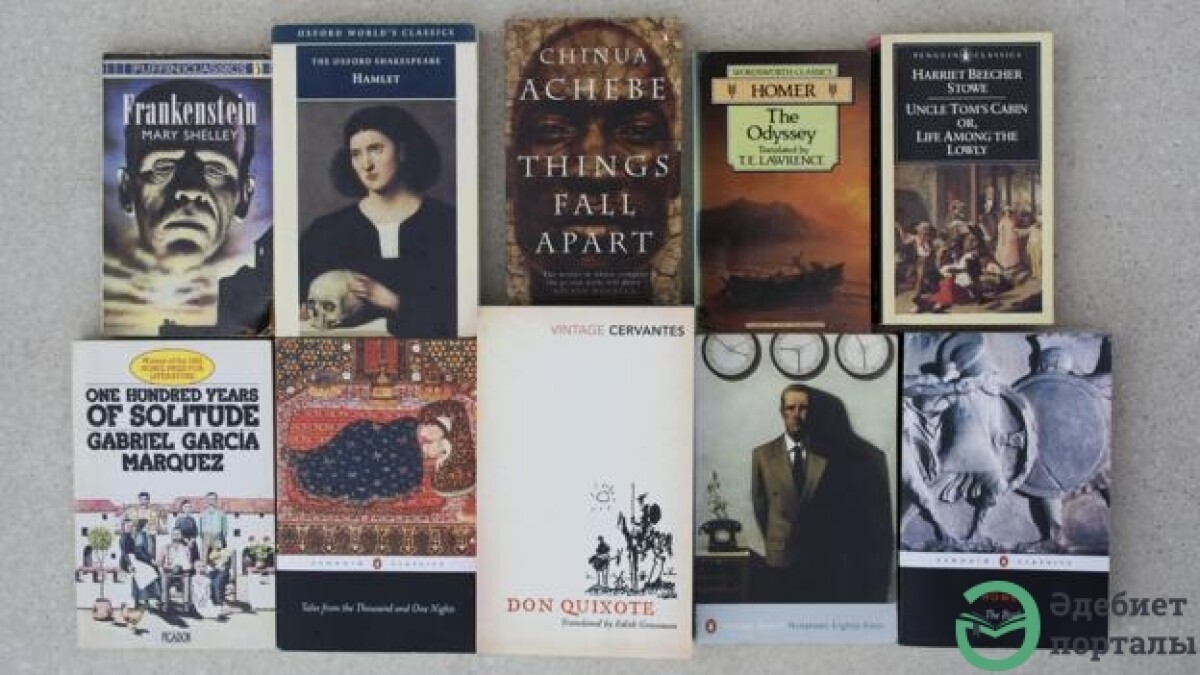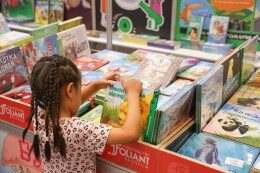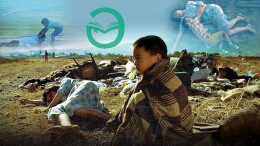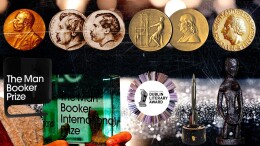BBC Culture asked writers around the globe to pick stories that have endured across generations and continents – and changed society.
In April 2018, BBC Culture polled experts around the world to nominate up to five fictional stories they felt had shaped mindsets or influenced history. We received answers from 108 authors, academics, journalists, critics and translators in 35 countries – their choices took in novels, poems, folk tales and dramas in 33 different languages, including Sumerian, K’iche and Ge’ez.
Homer’s Odyssey topped the list, followed by Uncle Tom’s Cabin – examples of the different ways in which respondents interpreted a ‘world-shaping story’, with the ancient epic having survived generations of retelling, while Harriet Beecher Stowe’s 1852 novel was commended for being “the first widely-read political novel in the US”. Frankenstein, Nineteen Eighty-Four and Things Fall Apart rounded up the top five – which features two female authors (in all, women made up 23 of the top 100 authors).
The most popular authors of the top 100 stories were Shakespeare, Virginia Woolf and Franz Kafka, with three stories each. In among the recognised classics, there are a few texts less well-known globally: Upton Sinclair’s The Jungle, which directly led to the introduction of new federal laws on food safety, and Toba Tek Singh by Saadat Hasan Manto, praised as “a classic short story that translates the trauma of Partition through the post-Partition exchange of lunatics across the India and Pakistan border”.
It’s not a definitive list. This is just a starting point, aiming to spark a conversation about why some stories endure; how they continue to resonate centuries and millennia after they were created. And why sharing those stories is a fundamental human impulse: one that can overcome division, inspire change, and even spark revolutions.
Top 100
The list was determined via ranked ballots and first placed into descending order by number of critic votes, then into descending order by total critic points, then alphabetically (for 73 to 100, the titles listed are tied).
1. The Odyssey (Homer, 8th Century BC)
2. Uncle Tom’s Cabin (Harriet Beecher Stowe, 1852)
3. Frankenstein (Mary Shelley, 1818)
4. Nineteen Eighty-Four (George Orwell, 1949)
5. Things Fall Apart (Chinua Achebe, 1958)
6. One Thousand and One Nights (various authors, 8th-18th Centuries)
7. Don Quixote (Miguel de Cervantes, 1605-1615)
8. Hamlet (William Shakespeare, 1603)
9. One Hundred Years of Solitude (Gabriel García Márquez, 1967)
10. The Iliad (Homer, 8th Century BC)
11. Beloved (Toni Morrison, 1987)
12. The Divine Comedy (Dante Alighieri, 1308-1320)
13. Romeo and Juliet (William Shakespeare, 1597)
14. The Epic of Gilgamesh (author unknown, circa 22nd-10th Centuries BC)
15. Harry Potter Series (JK Rowling, 1997-2007)
16. The Handmaid's Tale (Margaret Atwood, 1985)
17. Ulysses (James Joyce, 1922)
18. Animal Farm (George Orwell, 1945)
19. Jane Eyre (Charlotte Brontë, 1847)
20. Madame Bovary (Gustave Flaubert, 1856)
21. Romance of the Three Kingdoms (Luo Guanzhong, 1321-1323)
22. Journey to the West (Wu Cheng'en, circa 1592)
23. Crime and Punishment (Fyodor Dostoyevksy, 1866)
24. Pride and Prejudice (Jane Austen, 1813)
25. Water Margin (attributed to Shi Nai'an, 1589)
26. War and Peace (Leo Tolstoy, 1865-1867)
27. To Kill a Mockingbird (Harper Lee, 1960)
28. Wide Sargasso Sea (Jean Rhys, 1966)
29. Aesop's Fables (Aesop, circa 620 to 560 BC)
30. Candide (Voltaire, 1759)
31. Medea (Euripides, 431 BC)
32. The Mahabharata (attributed to Vyasa, 4th Century BC)
33. King Lear (William Shakespeare, 1608)
34. The Tale of Genji (Murasaki Shikibu, before 1021)
35. The Sorrows of Young Werther (Johann Wolfgang von Goethe, 1774)
36. The Trial (Franz Kafka, 1925)
37. Remembrance of Things Past (Marcel Proust, 1913-1927)
38. Wuthering Heights (Emily Brontë, 1847)
39. Invisible Man (Ralph Ellison, 1952)
40. Moby-Dick (Herman Melville, 1851)
41. Their Eyes Were Watching God (Zora Neale Hurston, 1937)
42. To the Lighthouse (Virginia Woolf, 1927)
43. The True Story of Ah Q (Lu Xun, 1921-1922)
44. Alice's Adventures in Wonderland (Lewis Carroll, 1865)
45. Anna Karenina (Leo Tolstoy, 1873-1877)
46. Heart of Darkness (Joseph Conrad, 1899)
47. Monkey Grip (Helen Garner, 1977)
48. Mrs Dalloway (Virginia Woolf, 1925)
49. Oedipus the King (Sophocles, 429 BC)
50. The Metamorphosis (Franz Kafka, 1915)
51. The Oresteia (Aeschylus, 5th Century BC)
52. Cinderella (unknown author and date)
53. Howl (Allen Ginsberg, 1956)
54. Les Misérables (Victor Hugo, 1862)
55. Middlemarch (George Eliot, 1871-1872)
56. Pedro Páramo (Juan Rulfo, 1955)
57. The Butterfly Lovers (folk story, various versions)
58. The Canterbury Tales (Geoffrey Chaucer, 1387)
59. The Panchatantra (attributed to Vishnu Sharma, circa 300 BC)
60. The Posthumous Memoirs of Bras Cubas (Joaquim Maria Machado de Assis, 1881)
61. The Prime of Miss Jean Brodie (Muriel Spark, 1961)
62. The Ragged-Trousered Philanthropists (Robert Tressell, 1914)
63. Song of Lawino (Okot p'Bitek, 1966)
64. The Golden Notebook (Doris Lessing, 1962)
65. Midnight's Children (Salman Rushdie, 1981)
66. Nervous Conditions (Tsitsi Dangarembga, 1988)
67. The Little Prince (Antoine de Saint-Exupéry, 1943)
68. The Master and Margarita (Mikhail Bulgakov, 1967)
69. The Ramayana (attributed to Valmiki, 11th Century BC)
70. Antigone (Sophocles, c 441 BC)
71. Dracula (Bram Stoker, 1897)
72. The Left Hand of Darkness (Ursula K Le Guin, 1969)
73. A Christmas Carol (Charles Dickens, 1843)
74. América (Raúl Otero Reiche, 1980)
75. Before the Law (Franz Kafka, 1915)
76. Children of Gebelawi (Naguib Mahfouz, 1967)
77. Il Canzoniere (Petrarch, 1374)
78. Kebra Nagast (various authors, 1322)
79. Little Women (Louisa May Alcott, 1868-1869)
80. Metamorphoses (Ovid, 8 AD)
81. Omeros (Derek Walcott, 1990)
82. One Day in the Life of Ivan Denisovich (Aleksandr Solzhenitsyn, 1962)
83. Orlando (Virginia Woolf, 1928)
84. Rainbow Serpent (Aboriginal Australian story cycle, date unknown)
85. Revolutionary Road (Richard Yates, 1961)
86. Robinson Crusoe (Daniel Defoe, 1719)
87. Song of Myself (Walt Whitman, 1855)
88. The Adventures of Huckleberry Finn (Mark Twain, 1884)
89. The Adventures of Tom Sawyer (Mark Twain, 1876)
90. The Aleph (Jorge Luis Borges, 1945)
91. The Eloquent Peasant (ancient Egyptian folk story, circa 2000 BC)
92. The Emperor's New Clothes (Hans Christian Andersen, 1837)
93. The Jungle (Upton Sinclair, 1906)
94. The Khamriyyat (Abu Nuwas, late 8th-early 9th Century)
95. The Radetzky March (Joseph Roth, 1932)
96. The Raven (Edgar Allan Poe, 1845)
97. The Satanic Verses (Salman Rushdie, 1988)
98. The Secret History (Donna Tartt, 1992)
99. The Snowy Day (Ezra Jack Keats, 1962)
100. Toba Tek Singh (Saadat Hasan Manto, 1955)
http://www.bbc.com/culture/story/20180521-the-100-stories-that-shaped-the-world












